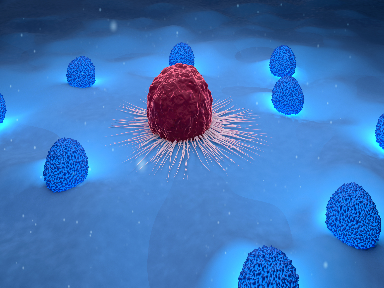pharmaceutical-technologyJuly 09, 2021
Tag: KAIST , Institut Pasteur , COVID-19
A research team from the Korea Advanced Institute of Science and Technology (KAIST) and Institut Pasteur Korea has detected repurposed therapies for the treatment of Covid-19 via virtual screening and cell-based tests.
The team integrated pre-docking filtering based on shape resemblance and interaction similarity to virtually screen drugs with a very low false-positive rate.
This method will aid in quickly creating treatments for Covid-19 as well as other antiviral diseases, KAIST noted.
From a pool of 6,218 US Food and Drug Administration-cleared therapies or those in the clinic, the team found 38 drugs that can be repurposed to potentially treat Covid-19 using this strategy.
Seven of these compounds hindered SARS-CoV-2 replication in Vero cells while three of them – emodin, omipalisib and tipifarnib – demonstrated anti-SARS-CoV-2 activity in Calu-3 human lung cells.

KAIST researcher Woo Dae Jang said: “We plan to conduct further preclinical trials for optimising drug concentrations as one of the three candidates didn’t resolve the toxicity issues in preclinical trials.
“The most important part of this research is that we developed a platform technology that can rapidly identify novel compounds for Covid-19 treatment.
“If we use this technology, we will be able to quickly respond to new infectious diseases as well as variants of the coronavirus.”
Drug repurposing is a method used to develop antiviral drugs in less time. For this purpose, approved drugs are virtually screened, a strategy which KAIST noted to have a low hit rate and many predicted drug candidates are false positives.
To enhance hit rates, the team used filtering algorithms before and after the docking simulations.
Compounds with analogous shapes to the known active compounds for each target protein were chosen and leveraged for docking simulations in the pre-docking filtering process.
In the post-docking filtering process, the compounds detected using the docking simulations were analysed considering the docking energy and the protein-ligand interactions’ similarity with the established active compounds.
According to the investigational results, the virtual screening strategy offered an increased hit rate of 18.4%, enabling the detection of seven potential therapies out of the 38 drugs selected in the initial stage.
The Ministry of Science and ICT and the National Research Foundation of Korea-funded KAIST Mobile Clinic Module Project supported the drug repurposing research.


Contact Us
Tel: (+86) 400 610 1188
WhatsApp/Telegram/Wechat: +86 13621645194
Follow Us:




 Pharma Sources Insight January 2025
Pharma Sources Insight January 2025


